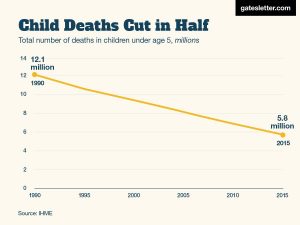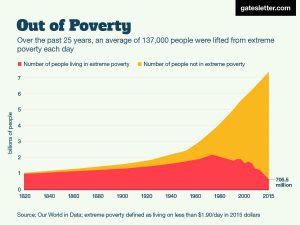“Why Aren’t You Cynical by Now?” It’s a common question: I’ve been writing True for nearly 25 years now, chronicling the sometimes staggering obliviocy of our species, but I still have an optimistic view of humanity. In fact, my optimism has increased over time — probably because I’m such an avid people-watcher.
So I sigh when readers unsubscribe because it’s “too depressing” to see how their fellow citizens fail to think. They’re really missing the point: every single one of us does stupid things sometimes (absolutely including me! It’s part of being human.) We get mad, we misunderstand, and we react first and think later (if at all). We all suffer from uninformed, inexperienced parents. Dealt with bullies at school. Were treated unfairly. And most of us carry the resulting grudges at least somewhat, which triggers us to react, rather than think, sometimes to the oddest stimulus.
What It’s Really About
Rachel in Colorado wrote to tell me “This is True is one of the best parts of my life. It is truly thought-provoking, and each week makes me think about how I can become a better person, think harder about what decisions I make, and helps me to assist others to see ways they can change their circumstances and those of people around them. Thank you again for providing entertainment and material for better choices.”

That’s what it’s about: readers who, sure, enjoy the humor of the stories, but can’t help but think about the issues those stories raise and, even more importantly, think about how they can use what they read to become better people, think harder about their decisions, and even leverage that into helping others — and give them tools to create an echo around them, too.
On a whim, I recently searched Twitter for the word “obliviot” — True’s word for the kind of people who, well, end up in the stories. I was astonished to see how many people are using it.
That’s your influence: you’re starting to use it, and others quickly grasp it and start using it too. That spreads awareness not of True itself, but of the idea behind it: calling out people not because they’re different from you in ethnicity, language, nationality, religion, profession, political party, or myriad other mostly meaningless factors, but rather because it’s obvious that they didn’t stop to use the brain they have. It’s something we all can do, and something we all can relate to since we’ve had the same failing at some point in our lives. Probably recently.
The Difference is, Then What?
We fail, but most of the time, we then get a chance to think again. If we’re mature, we apologize for our failing, and learn from it.
In a recent podcast I talked about one of the tools in the “thinking toolbox” — scenarios. It’s a thinking-ahead tool: “What would I do if…” and naming a scenario. For instance, as a volunteer medic I’ve been sent to a lot of car crashes involving animals where people have been terribly hurt. So what would I do if an animal jumped in front of me? The time to decide is well before it happens.
I was rolling on a medical call. It was serious: a woman in her 50s possibly having a stroke. It was daylight, clear, dry, and no traffic, so I was moving along quickly. As I went over a rise I saw a deer, startled by my siren, jump into the road, right in front of me.
Most people swerve to avoid hitting an animal. Had I done that, I would have been severely injured or killed: there were deep ditches on the sides of that road, and I would have rolled over. But this scenario was one I had previously thought about, and instead of swerving, I instinctively did what I had decided to do: hit the brakes hard and keep the steering centered. Maybe I’ll get lucky and the deer will be out of the way by the time I get there.
No such luck: I hit it squarely, causing $8,000 damage to my car. The deer was killed, but the important thing (to me!) was, I was not injured, let alone killed. Didn’t get a scratch. I was even able to continue to the medical call and take care of the patient — I was the closest medic by far, and was able to help the woman while waiting for the ambulance to arrive. The car was repaired; it had done its job, and replacing some parts was a hell of a lot cheaper than medical care would have been: my parts aren’t as easily replaceable.
Be Sure You Get the Point
This isn’t a “yay me” story, it’s simply another example of how thinking works. If telling that story helps others to think, then I’ve done my job. And True is absolutely filled with stories that demonstrate great — or terrible — thinking, and they’re fodder to get you thinking. And when you do, you’ll see the world is improving bit by bit as time goes by.

Thinking, rather than reacting (or worse, moving through life without any conscious realization at all), improves the world. Thinking matters. What you do matters, and what you do is greatly impacted by if and how you think.
If you’re already a great thinker, then you can use the stories to help others learn how to think, or decide that thinking is better than the way they’re going through life. The stories are entertaining, too? Great! That may be what got you to read them. But if you let them bog you down, depress you, make you give up? Then you’re not thinking clearly! Back up, and look at the bigger picture. Unlike what many believe, the world is getting better and better every day.
The Even Bigger Picture
It’s not just me saying that. “There are two amazing books” Bill Gates has read recently. “One is Enlightenment Now by Pinker and another is Factfulness by Rosling. They are both very readable and explain that the world is getting better,” Gates says. Objectively better in measurable ways, like life expectancy, poverty rates, health, and more.
“News” is pretty much defined as unusual, probably bad, things happening. That leads people to believe things are getting worse and worse. But they’re not: the world is improving dramatically.
By making True entertaining, the idea is to lighten things up a little and, yes, help you understand how things could be better. Sure enough, things are getting better, partly because we can learn from the mistakes of others. So be sure you take the stories that way: have fun with them, learn from there, and help others learn too, when you have the opportunity to teach. That’s how I look at it, and as the years pass by I have more hope for humanity, rather than less.
Trust Me: you’ll be more optimistic too because if you look, you can see the lights coming on in others. I have the letters from readers that prove it.
Related Reading
- My discussion on True’s focus from 2011.
- A buddy’s daily brief newsletter, Not All News Is Bad (he’s the same one who took over the “good news” newsletter I started in 1999, HeroicStories).
- The Gates Letter discussing how the world has dramatically improved in the past quarter century.
- This essay has been adapted for and published on Medium, since it has much wider application than to just be read by current True readers.
– – –
Bad link? Broken image? Other problem on this page? Use the Help button lower right, and thanks.
This page is an example of my style of “Thought-Provoking Entertainment”. This is True is an email newsletter that uses “weird news” as a vehicle to explore the human condition in an entertaining way. If that sounds good, click here to open a subscribe form.
To really support This is True, you’re invited to sign up for a subscription to the much-expanded “Premium” edition:
Q: Why would I want to pay more than the minimum rate?
A: To support the publication to help it thrive and stay online: this kind of support means less future need for price increases (and smaller increases when they do happen), which enables more people to upgrade. This option was requested by existing Premium subscribers.


Another related book, that is well worth a read: Gregg Easterbrook’s It’s Better Than It Looks: Reasons for Optimism in an Age of Fear
—
Oh, I know there are a lot of such books. Rather than try to judge what’s best worth the time, I decided just to relay Gates’ recommendation. -rc
Boring charts and graphs just don’t cut it if you want to make sense of things … there’s just too many ways they can go together. Hans Rosling has gathered the raw data from over a dozen sources and then animates it to see how things have changed over time.
In this video, with commentary, he shows how all the countries of the world have become wealthier and healthier, even the most backward ones, over the last 200+ years. The last part is amazing to see how everyone is starting to catch up to the leaders in the last 20 or 30 years. You can set up your own data comparisons, your own countries and time spans on the GapMinder.org/tools site.
The world really is getting a *lot* better and very quickly.
I am far more cynical now than I was in my youth, but not because of your newsletter. Mostly, I think, because I just feel so utterly *powerless* against the bad things which surround me every day.
Not the bad things which happen far away beyond my reach, but things which are local and very much within my reach: Corruption in the city, county, and state governments, relatives and neighbors who have insane levels of prejudice and hatred against anyone who isn’t a white Anglo-Saxon-descended evangelical Christian, and per-capita public education spending which is consistently in the bottom 10% for the nation. Ever wonder why we’re “Flori-DUH”? I’ll bet generation after generation of dismal education spending has something to do with it. One year we were even 51st out of 50 states. How did we manage that, you ask? The District of Columbia was included in the report that year. Plus all the other little stupidities, like people who drive as dangerously as possible for two months after the races have been to town (I live near a NASCAR racetrack). Seriously, because you *saw* a race car driver, now you think you *are* one?
Being politically active didn’t reduce corruption or improve school spending, but it did get me onto a horde of mailing lists asking for political donations. Trying to engage in polite, constructive conversations with my relatives got me dropped from their Christmas card lists, but added to their “save your soul” church newsletters. I talk to my neighbors as little as possible, and I’ve settled for just flicking off the bad drivers. Not constructive, but it does provide a certain satisfaction.
I hope the books are right. I want the world to improve. I just want some of the improvements to happen near me.
As I was reading I was thinking I needed to recommend Factfulness to you. Then I see you recommending it to us. Then I see the commenters are familiar with it.
Seeing others are already ahead of me helps calm my cynical self.
—
My audience is more aware than most. Happily! 🙂 -rc